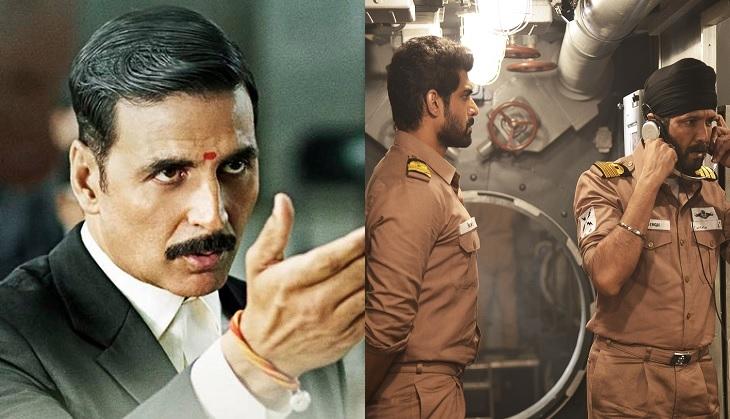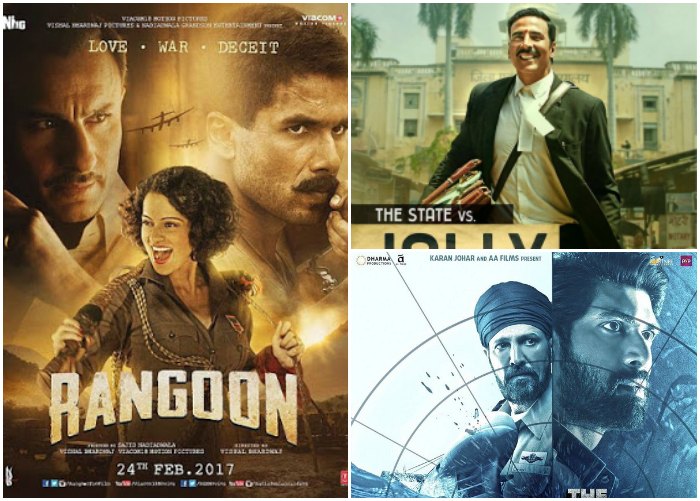![Click To Enlarge]() On the sidelines of his latest project in Mumbai, one of Iran's most acclaimed directors talks about his nation's resilience, why cinematic trends don't bother him, and why his Prophet film fell prey to Saudi Arabia's needless politickingVishwas Kulkarni (MUMBAI MIRROR; March 5, 2017)
On the sidelines of his latest project in Mumbai, one of Iran's most acclaimed directors talks about his nation's resilience, why cinematic trends don't bother him, and why his Prophet film fell prey to Saudi Arabia's needless politickingVishwas Kulkarni (MUMBAI MIRROR; March 5, 2017)At the fag end of Yari Road, well past its tiny bylanes and faux-bohemian cafés, is a makeshift football field, abutting the shanties of Versova fishing village. The football field also doubles up as a garbage dump; an ecosystem of stray dogs, pigs, storks, and a murder of crows are in perfect harmony. A thin gaggle of delighted residents of all age groups have gathered to watch the shooting of Beyond The Clouds, a film by Iranian auteur Majid Majidi. Everyone likes a slice of tinsel town.
Three make-up vans together make a border between the dump and a sandpit, which, in turn, has been converted into an ersatz Dhobi Ghat. Triangles of bamboo sticks hold up undulating, defiled sheets of cloth (“a section of the original Dhobi Ghat in Mahalaxmi didn't work for us, so we are recreating it here,“ explains producer Shareen Mantri of Eyecandy Films). On arriving, we are immediately corralled in a makeup van and offered beverages. “I think it's better for you to be here, it's too hot outside,“ says the PR agent. However, the air-conditioner is not working, so we step out with some club soda.
“Mr Majidi will be ready shortly, but may not be ready for photographs, mind you,“ says the PR agent. The sun is about to set and a camera crane hovers above the post-apocalyptic terrain.“Where is Mr Majidi by the way?“ “He's in the blue tent,“ says the PR agent. “Is that Boman Irani playing cricket?“ “No, but everyone seems to think he is and everyone calls him Boman Irani! Isn't that hilarious!“ says Mantri. The Boman Irani lookalike is incidentally Mr Majidi's assistant, and someone who has taken a liking to gully cricket. “This is the first time that Majid Majidi is working with an all-Indian crew. It's a very special film,“ she adds. At some point, before our interview with Mr Majidi, we also meet Kishor Arora, coproducer of Beyond the Clouds. “How is it to work with the auteur?“ we ask him. “Hum sirf maang sangte hain. Lekin deta toh uparwaala hee hain.“ (Us mortals can merely ask, but only the Almighty can grant you your wish.)
We enter the blue tent. On the table are half a dozen boxes from what appears to be a neighbourhood bakery. “Oh, no, I'm on a diet,“ I plead. “No, it's not a cake, it's a samosa!“ says someone from the production team. Mr Majidi, 58, and his translator, Jawad Askari, 67, are delighted to meet Mumbai Mirror again; the duo has incidentally met us in 2010.
For a man who is a star in many worlds, Majidi, with his beige cap, black casual tee, military green trousers, thick moustache and a never-ending supply of Marlboro Lights, exudes a disarming air that belongs more to a 'Visit Iran' brochure than an elite film club. As part of a post-Islamic Revolution generation of filmmakers, the man heralded a new era in Persian cinema. His 1998 film, Children of Heaven, was the first Iranian film to have then been nominated for Best Foreign Picture at the Oscars. In addition, his 2002 documentary, Barefoot To Berat, dealt with the plight of Afghan refugees in the wake of America's ill-fated 2001 military offensive. His last film, Muhammad: Messenger of God (2015), was hailed as “intellectually honest, committed and poetic“ by Phil Hoad in The Guardian, but also earned him a fatwa from the Mumbai-based Raza Academy and brickbats from Sunni quarters of the Middle East. Were the more artistic virtues of his operatic oeuvre lost in the Sunniversus-Shia polemic? “My last film focuses on the childhood part of Mohammed. I made this film precisely to give a very clear picture of Islam, to erase the misconception that it is a violent religion. But to my shock, Saudi Arabia and Egypt picked up a point and tried to accuse me of making something un-Islamic. I request their knowledgeable priests to watch this film and tell me what is so objectionable about my film. Let me be very clear: their approach to this was purely political. And I am of the firm belief that Islam teaches you to respect everyone.“
Yet, for all his good intentions, does it sometimes get tiresome to come from Iran, a nation that is always threatening to emerge from the shroud of sanctions, only to slide back into isolation? How does Mr Majidi negotiate his Iranian identity in a world fraught with Islamophobia? “Our biggest crime is that we want to be independent, but we always have to face hurdles. History shows us that Iranians do not give in so easily. We hate to be governed by any other country. We are considered to be rich, based on the oil and gas that we have, but our main power lies with our own ambitions, our desire to work hard. Thirty-seven years of sanctions have not crushed us. On the contrary, such oppression has only made our resolve stronger.“ Yet, doesn't Iran also play a part in the unending, and sometimes horrific, sectarian violence that has balkanised the Middle East? Will the nightmare ever end? “Other countries do follow a formula of dividing the region. I'd love to bring forth an important point here: 10 per cent of Iranians are Sunnis and there is never a tussle between Sunnis and Shias in Iran.“
The atmosphere in the blue tent has darkened, even though Mr Majidi and his translator seem perfectly chatty; Mantri, who so far was part of the delegation that entered the tent at the beginning of our interview, is fuming and storms out. It's like a UN refugee crisis meeting that has gone wrong. “Can we steer the conversation towards the film, please?“ says a second PR agent seated to my right. Sure. How is it to be working with an all-Indian production? “I have long cherished the desire to make a film in India and the team that I have found here is excellent. Work is progressing rather well. My current film follows the same skein of thought that informed my earlier cinema; it carries the message of humanity, of love, of bringing people closer to each other.“
Coming from the second wave of Iranian cinema (post-Islamic Revolution), a movement that brought Iranian cinema to the world stage, what does he think of the metastasising influence of digital cinema. After all, a younger, brasher generation with their nano-cameras and what have you is forever threatening to take over the world. “As far as I am concerned, I am still absorbed by my own concerns as an artist. New trends do not bother me. Despite technological progress, the soul of a film will always be the message it carries, the story.“
What has been his most inspiring moment whilst shooting in Maximum City? “One day, on location [at Babulnath, we are later informed], I saw a three-to four-year-old girl. She impressed me a lot. Her name is Asha and she is playing a pivotal role in my film. I did cast some children via a child casting agent, but this chance encounter has changed my film. It's exactly the face that I require, I realised. She is at present creating some of the best moments in our film. I had an extraordinary realization that she is the one. She has a charisma that I cannot express in words. Besides, her English is as good as mine!“ he laughs. Mantri is back in the tent: “I think the girl can be a separate story altogether,“ she interjects.
The interview ends with Mr Majidi telling us that his favourite Hindi word, one that he has picked up on his Mumbai sojourn, is “chalo“. We tell him that it seems that our “chalo, chalo“ moment has indeed arrived and we all cackle as we step out of the tent into the lavender of a Versova dusk. Outside, the PR agent is huddled by the clotheslines, and visibly worried. “Look, the producers really don't want any of that Sunni-Shia stuff, yaar. We don't want any trouble. Can you please, please, please leave that bit out?“ Our larger concern though is getting a photograph of the genius. In the gloaming, there seems to be little chance of this. “There is no light, you see,“ says the PR agent. “Why don't we shoot him on the set tomorrow and email you a photograph instead? Besides, he may not want to be shot. Listen, I'm being bitten by red ants here. Can't we just do the shoot tomorrow?“ When we ask Mr Majidi, who comes from a tradition of experimental theatre, he is only too happy to strike a pose. After all, who would know better than him that all you need to put up a good show is a star and an unfurling piece of cloth.
![Click To Enlarge]()




















